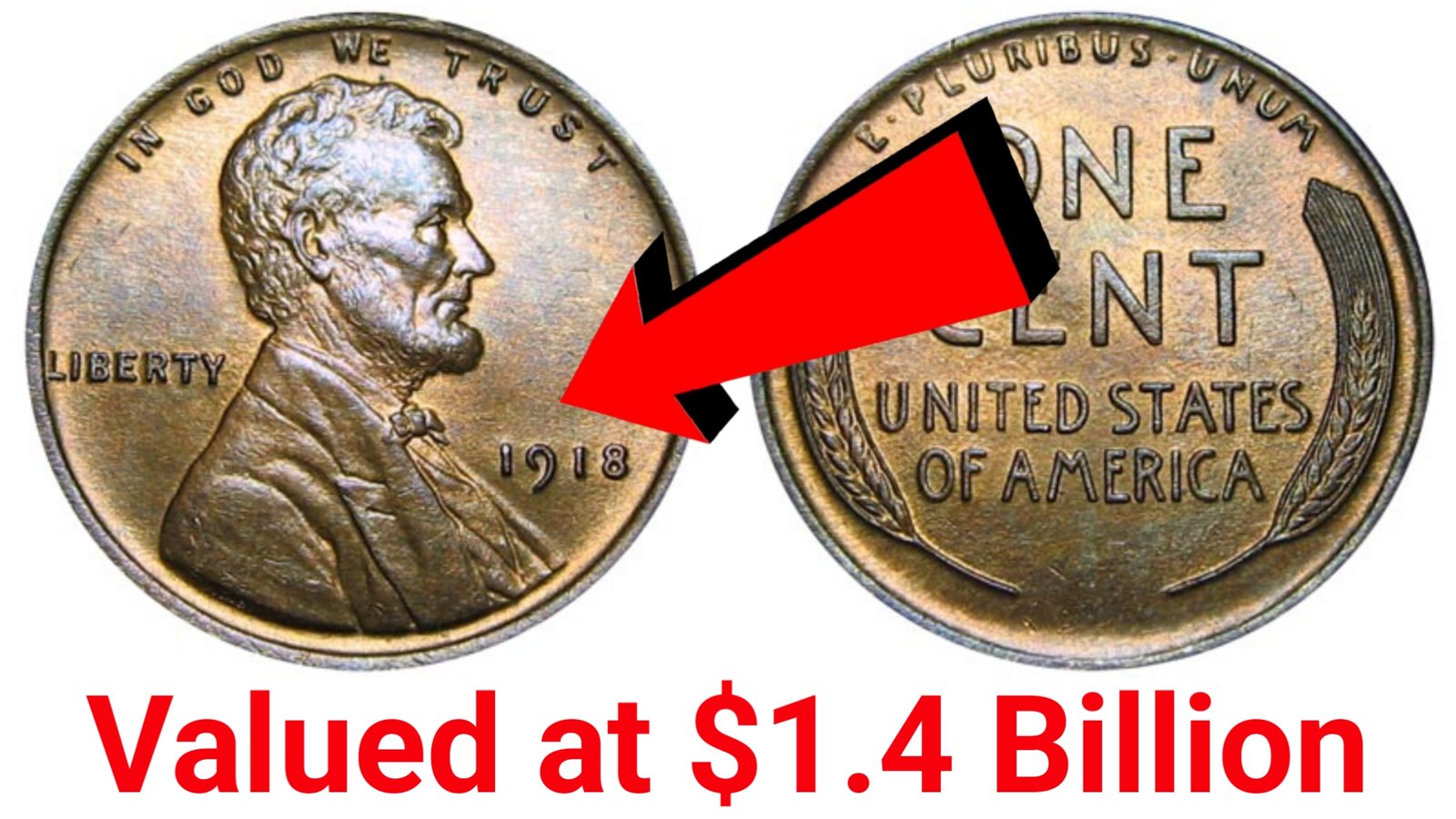The Lincoln Wheat Penny has long fascinated coin collectors and history enthusiasts. But recently, headlines have claimed that one of these humble copper coins is worth an astonishing $1.4 billion—sparking curiosity, excitement, and skepticism among the public. Could a simple one-cent coin really make you a billionaire? Let’s separate fact from myth.
The Legacy of the Lincoln Wheat Penny
First minted in 1909 to honor President Abraham Lincoln’s 100th birthday, the Wheat Penny quickly became one of America’s most iconic coins. Designed by Victor David Brenner, the obverse features Lincoln’s portrait, while the reverse showcases two wheat stalks.
The series ran until 1958, after which the reverse design was replaced with the Lincoln Memorial. Over the decades, more than 27 billion Wheat Pennies were struck, making them widely available. Despite their abundance, certain rare varieties have become prized treasures for collectors.
The Billion-Dollar Rumor
The claim that a Lincoln Wheat Penny has been valued at $1.4 billion appears to be an exaggeration that spread through online forums, social media, and collecting folklore.
While some Wheat Pennies have indeed sold for millions at auction, there is no verified record of any coin reaching the billion-dollar mark. Experts agree that the story is more myth than reality, but it continues to capture the imagination of treasure hunters.
The Real Valuable Wheat Pennies
Though no penny is worth $1.4 billion, some Lincoln Wheat Pennies are genuinely rare and highly valuable. Here are a few examples:
- 1909-S VDB : One of the first Wheat Pennies, minted in San Francisco with the designer’s initials, can fetch $700 to $150,000 depending on condition.
- 1943 Copper Penny : A famous mint error, these pennies were struck in copper instead of steel during World War II. One sold for $1.7 million at auction.
- 1955 Double Die : Known for its dramatic doubling in the date and lettering, this variety ranges from $1,000 to $50,000.
Why Are Some Pennies Worth Millions?
Several factors influence a coin’s market value:
- Rarity – Limited mintage or error coins are far more valuable.
- Condition – Mint state coins can be worth many times more than worn examples.
- Historical Significance – Coins tied to important eras or events attract higher interest.
- Collector Demand – Market trends and collector enthusiasm can drive up prices.
Are Valuable Wheat Pennies Still in Circulation?
Technically, yes. Wheat Pennies occasionally appear in circulation, but most are common dates in average condition. Rare varieties are far less likely to be found in pocket change today, over 60 years after production ended.
Your best bet for finding one is through:
- Inherited collections
- Estate sales
- Coin shops and shows
- Online auctions and marketplaces
The Bottom Line
The idea of a $1.4 billion penny may be nothing more than a viral myth, but that doesn’t mean Wheat Pennies aren’t worth hunting for. With some varieties fetching six- or seven-figure sums, it’s still possible that a coin in your collection—or even in an old jar at home—could be worth a small fortune.
So, the next time you spot a Lincoln Wheat Penny, don’t overlook it. While you probably won’t become a billionaire overnight, you might just have a hidden treasure worth thousands—or even millions—of dollars.
Pro Tip for Collectors: Always verify your coin with a reputable grading service before selling. Authenticity and condition are everything in the coin market.

